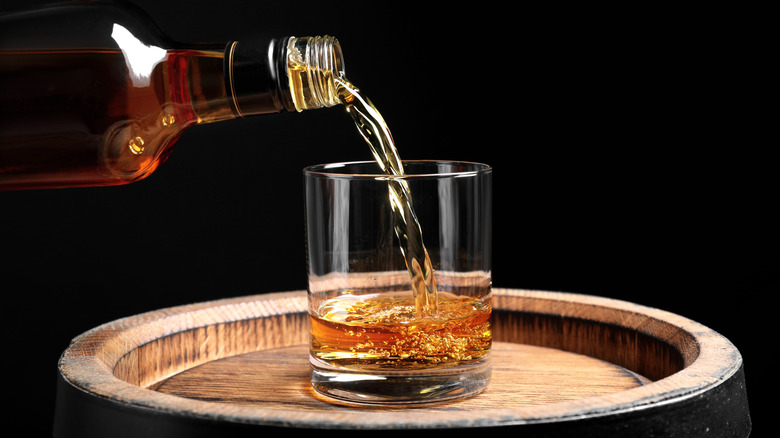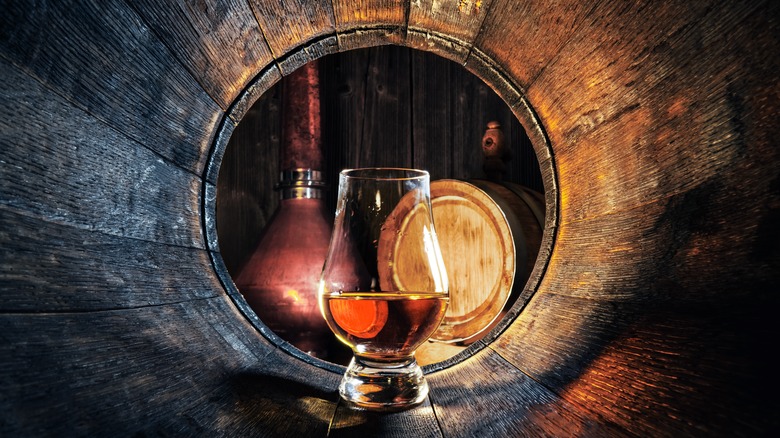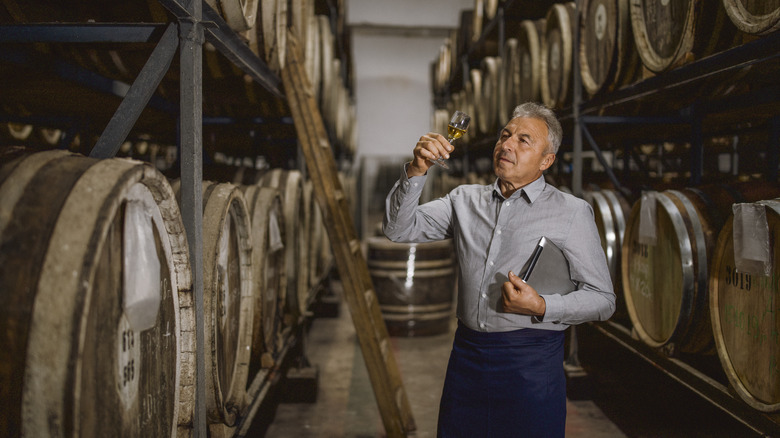What Single Estate Whiskey Actually Means
It seems that there's an ever-growing vocabulary you need to know to properly understand whiskey, and its many different variations, if for no other reason than to know just what exactly you're getting in that particular bottle. Even more frustrating are those terms that sound confusingly similar, such as single malt whiskey and single barrel whiskey, along with single grain whiskey. Well, add another "single" whiskey descriptor to that list, and it's one that has been appearing more and more frequently in recent years: single estate whiskey. So, what exactly does single estate whiskey mean?
The answer to that question is not very straightforward. Since there is no clear legal definition for what "single estate" actually means when it comes to whiskey (or any other spirit for that matter), whiskey distilleries and marketers are free to use the term however they want. At a minimum, single estate whiskey means that the grain (such as barley, corn, or rye) for that whiskey was grown in one location, and ideally, on that estate. At the other extreme, it means that the entire whiskey production process took place in one location, on the estate, and under the control of the distillery.
Single estate whiskey raises a lot of unanswered questions
Single estate whiskey seems like it should be a fairly straightforward term — whiskey that comes from a single estate. However, the confusion stems from what that actually entails. Is it enough that the grain is grown at or around that estate? Does the yeast also need to come from that estate? What about the water, since we already know that the water source does make a difference in the taste of bourbon? And what about the rest of the whiskey production process, including the malting, distillation, and maturation? Does the distillery have to actually own the estate and do they have to control each step of the whiskey production process themselves?
According to the Cambridge English Dictionary, "single-estate" is "used to refer to food or drink where the majority of the ingredients or the main ingredient comes from one area of land." However, some people in the whiskey industry argue that unless the distillery controls the entire process, it can't really call itself a single estate distillery nor can they call the whiskey they make single estate whiskey.
In particular, they take issue with the fact that many of the so-called single estate distilleries out there currently do not malt their own grain. Of the three main single estate distilleries producing single estate Scotch whisky in Scotland — Ballindalloch Distillery, Arbikie Highland Estate Distillery, and Lochlea Distillery — none of them malt their own barley on-site, though, truth be told, only a handful of Scotch distilleries in total do actually malt their own barley due to space constraints.
Does single estate whiskey make any difference in taste?
Then there is the question of whether it makes any difference if a whiskey is single estate, particularly if you are simply referring to the grains all coming from one estate. There is one belief that the single estate designation has virtually no effect on the actual flavor of the whiskey since the production process potentially removes any significant difference that may arise from the grain being grown in a particular area — it's an extension of belief that terroir doesn't have any real impact when it comes to whiskey, unlike wine. However, two recent studies seem to indicate otherwise.
In a 2021 study published in Foods, researchers compared two different types of barley both grown in two different locations in Ireland, while a 2019 study published in PLOS ONE compared three different varieties of corn all grown at different farm locations in Texas. In both studies, researchers found that the location and environment where the grain grew did make a difference in flavor of the spirit, even more so than the variety of the grain itself. If that's the case, then the single estate whiskey designation may actually mean something more than just a marketing ploy — it may actually make a difference in the taste of the whiskey. And that's something consumers may want to look out for in the near future.


